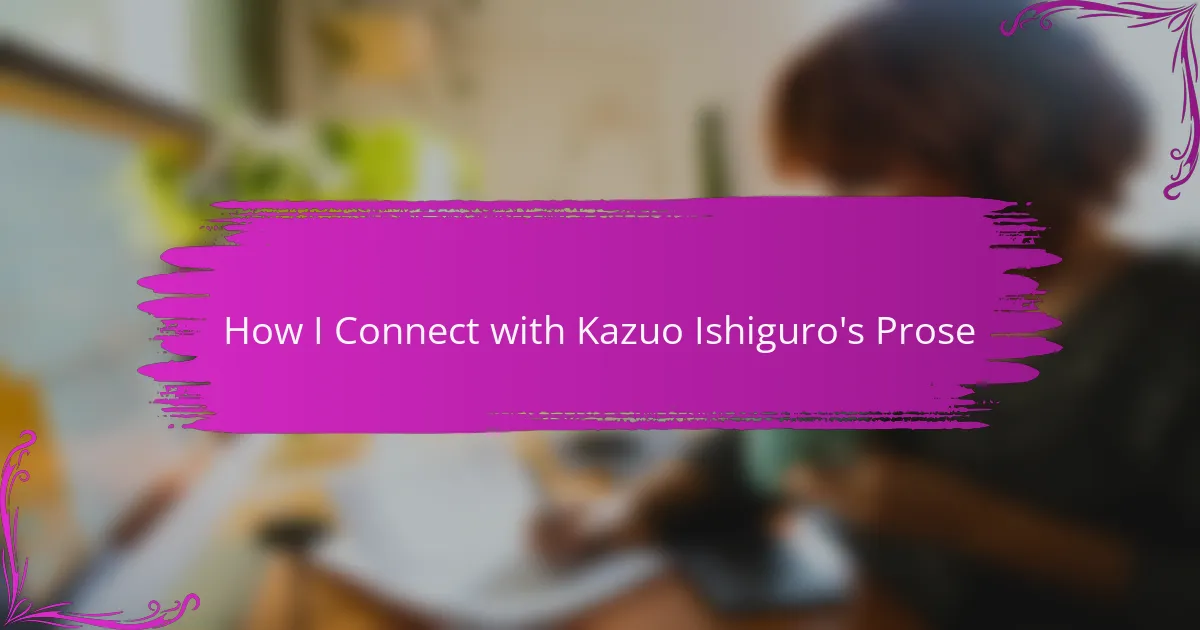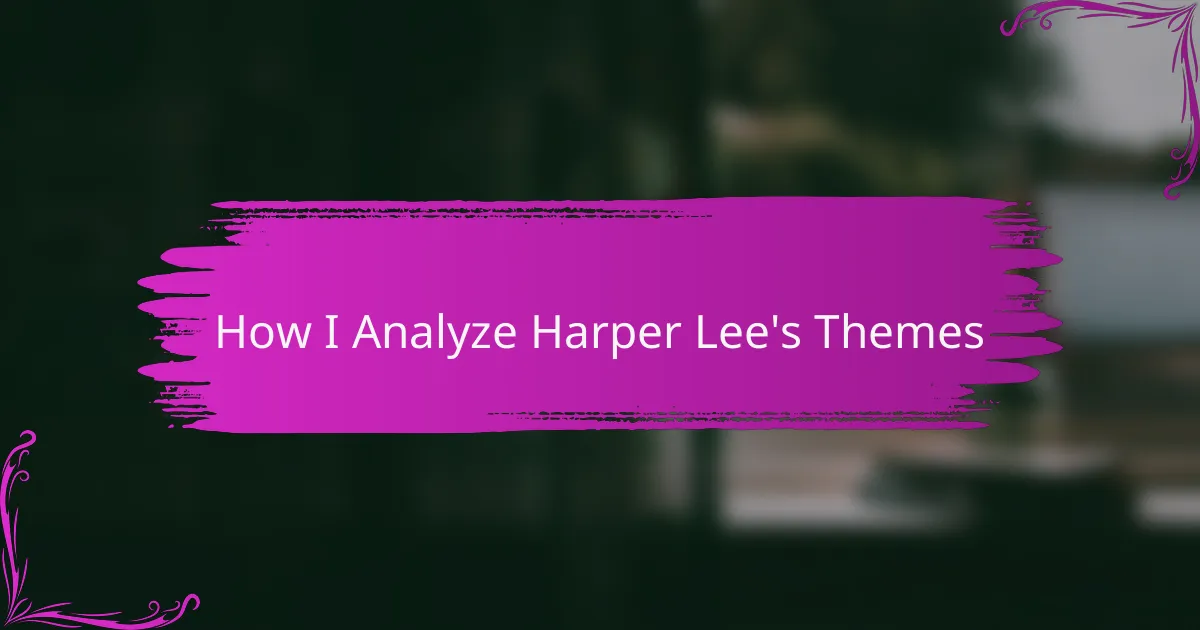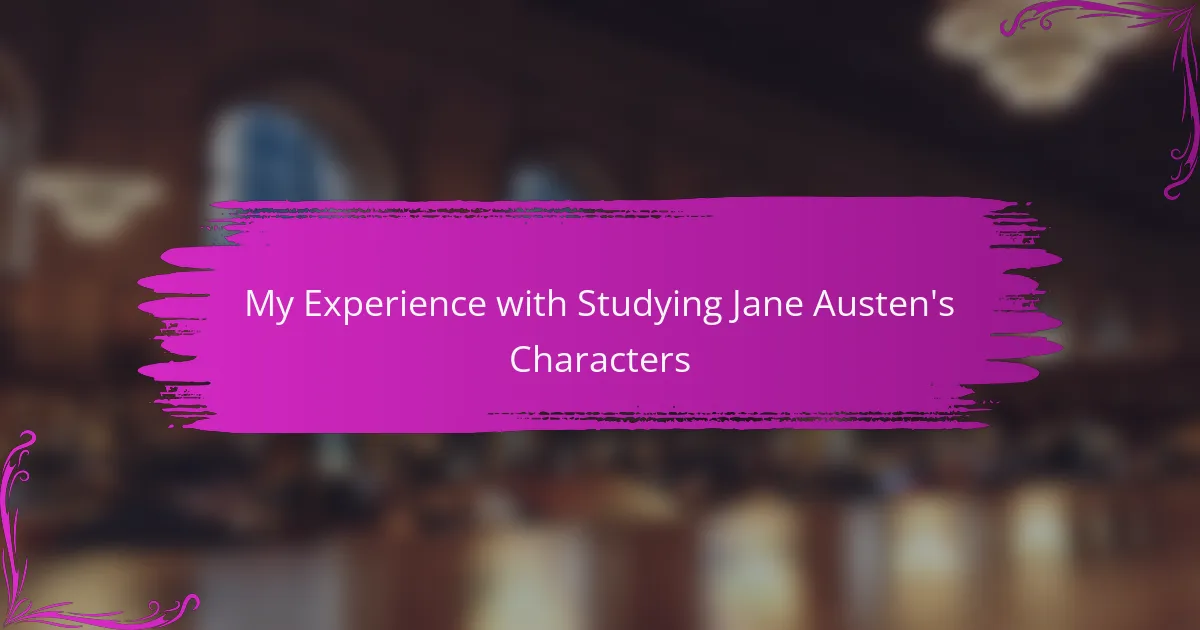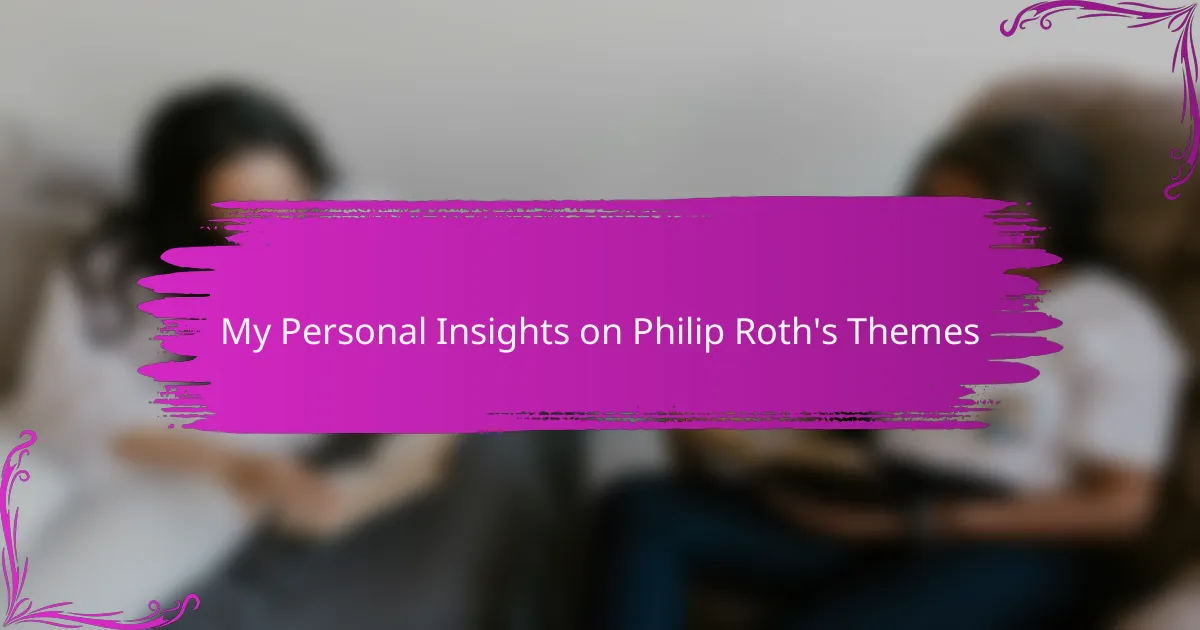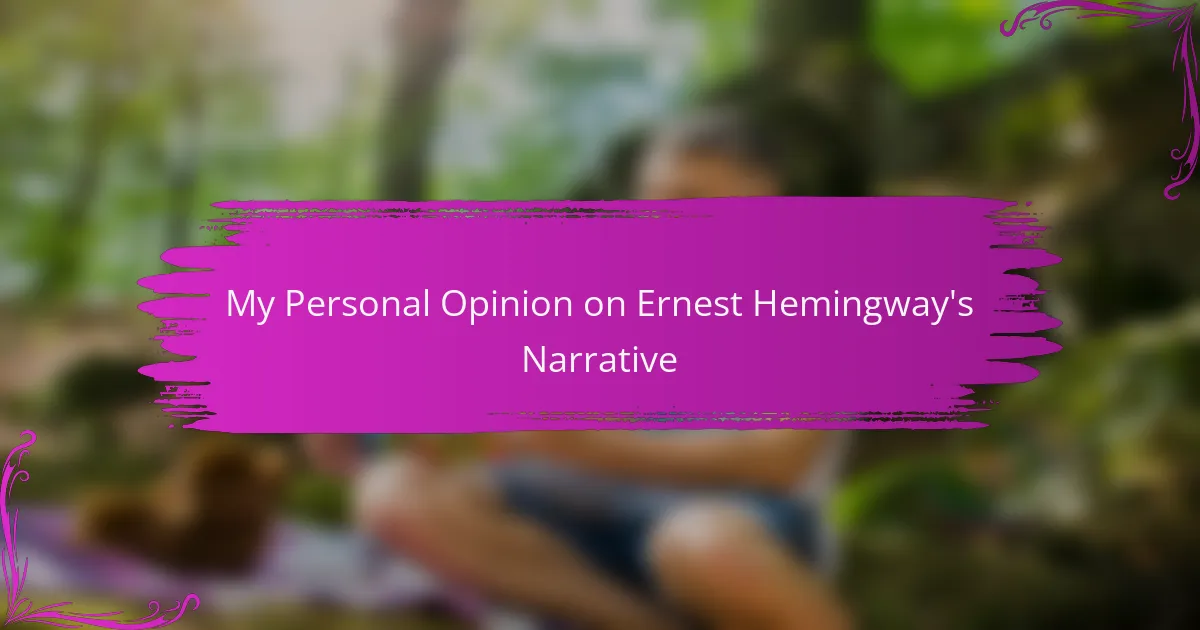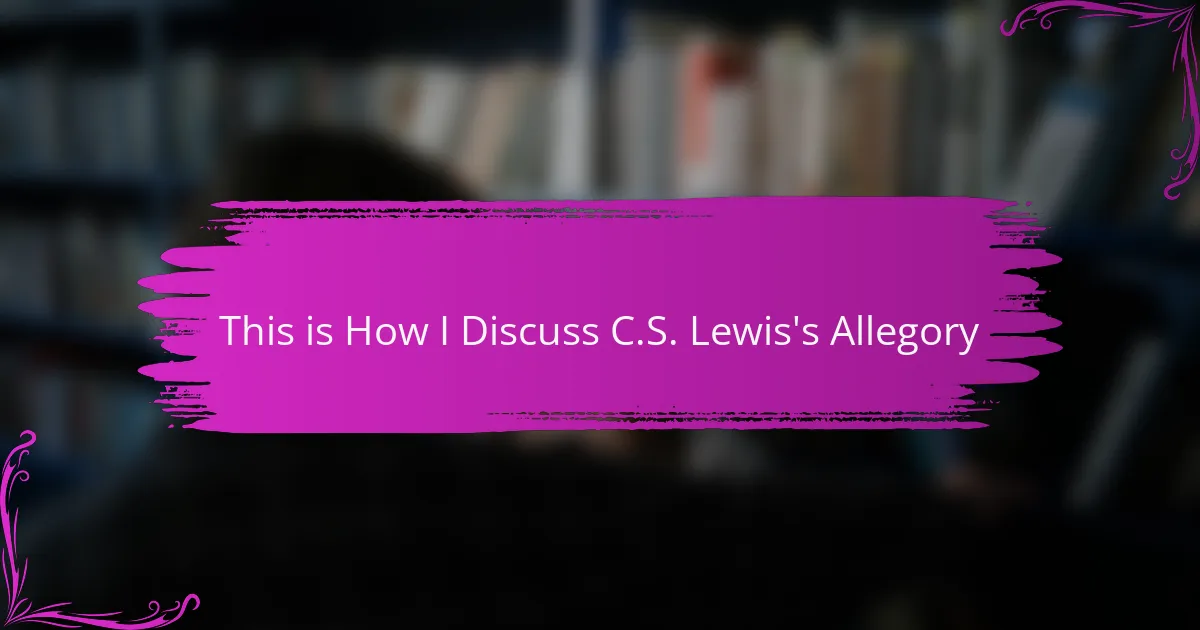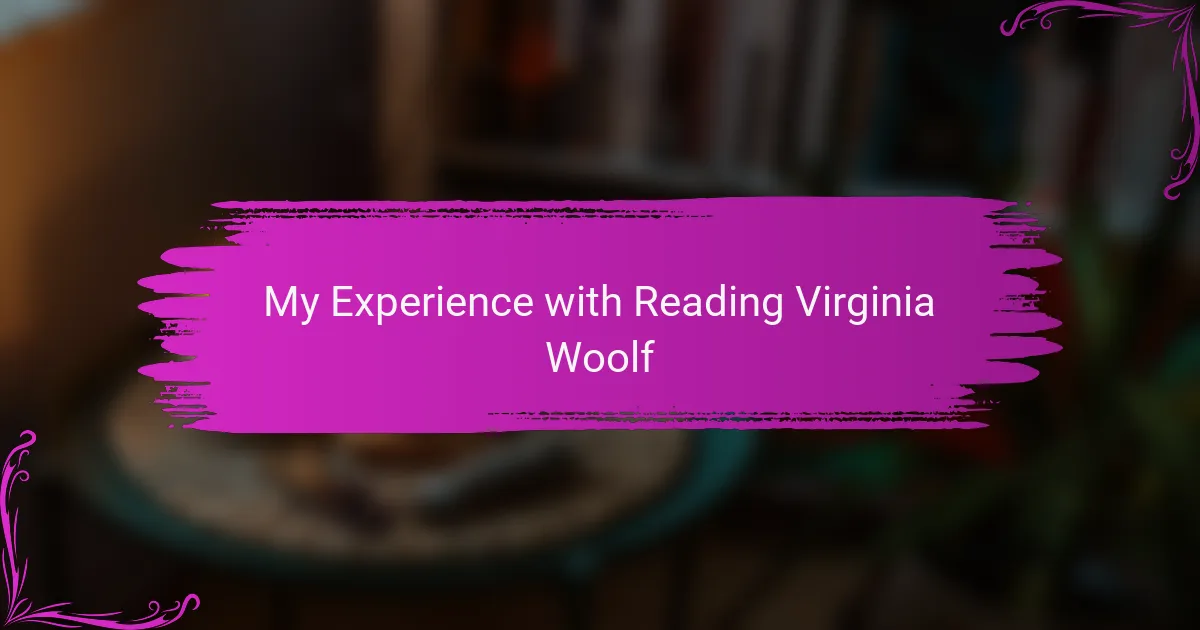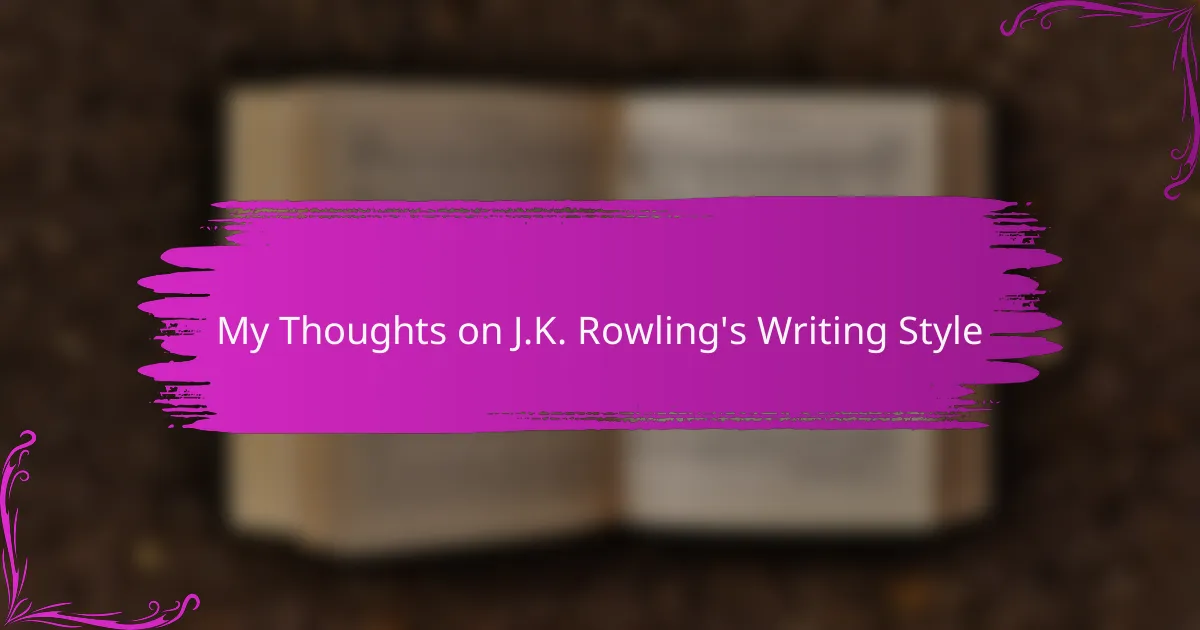Key takeaways Kazuo Ishiguro’s writing uniquely combines simplicity and depth, exploring themes of memory, identity, and emotional nuance. Literary analysis enhances critical thinking, deepens comprehension, and fosters personal connections with texts, enriching the reading experience. Effective techniques for engaging with prose include annotating, reading aloud, and discussing with others, which can reveal new insights. Ishiguro’s […]
Key takeaways Literary themes, such as racial injustice and loss of innocence, provide insight into human experiences and encourage personal reflection. Harper Lee’s works, particularly “To Kill a Mockingbird,” highlight ongoing social issues and promote discussions on empathy and moral growth. Exploring themes in literature fosters connections between historical contexts and contemporary societal challenges, enhancing […]
Key takeaways Studying literature, particularly Jane Austen’s works, enhances empathy and personal growth by connecting readers to complex characters and their societal challenges. Austen’s characters, such as Elizabeth Bennet and Mr. Darcy, reflect timeless themes of personal evolution and relationships, offering valuable insights into human behavior. Effective character analysis involves exploring motivations, relationships, and societal […]
Key takeaways Philip Roth’s literature deeply explores identity, desire, and the complexities of modern life, often reflecting on the immigrant experience and cultural heritage. His works invite readers to confront personal beliefs about mortality and societal expectations, fostering introspection and critical dialogue. Roth’s writing style blends humor and serious themes, making complex emotional experiences relatable […]
Key takeaways Hemingway’s writing is characterized by terse, direct language and the “iceberg theory,” encouraging readers to find deeper meanings beneath the surface. Key themes in his works include existentialism, isolation, and the complexities of masculinity, provoking introspection and emotional engagement. Narrative structure is crucial in literature, influencing how themes are perceived and allowing for […]
Key takeaways C.S. Lewis’s allegories use imaginative storytelling to convey deeper truths about faith, morality, and personal experiences. Allegories encourage critical thinking, self-reflection, and discussions about complex moral dilemmas and universal themes. Key themes in Lewis’s works include the intersection of faith and reason, the struggle between good and evil, and the importance of moral […]
Key takeaways Magical realism blends extraordinary elements with realistic settings, prompting readers to rethink perceptions of reality. Key characteristics include ordinary characters in surreal situations, emotional depth, cultural contexts, and rich symbolism. Gabriel Garcia Marquez’s notable works, such as “One Hundred Years of Solitude,” exemplify this genre, exploring profound themes of love and identity. Effective […]
Key takeaways Virginia Woolf’s literary style, particularly her use of stream of consciousness, invites readers to explore complex human emotions and thoughts deeply. Reading classic literature, such as Woolf’s works, enhances empathy and critical thinking by connecting readers with diverse perspectives and timeless themes. Woolf’s narratives challenge societal norms and expectations, especially related to women’s […]
Key takeaways J.K. Rowling’s “Harry Potter” series captures readers with themes of friendship, loyalty, and the struggle between good and evil. Her writing is characterized by vivid imagery, relatable characters, and a blend of humor with serious themes, enhancing reader engagement. Rowling masterfully employs world-building and character development, creating immersive experiences that resonate with her […]
Key takeaways Sylvia Plath’s imagery intricately reflects her internal struggles, using nature and stark visuals to convey deep emotions. Imagery in literature enhances connection, evokes emotions, and invites personal interpretation, making texts more impactful. Plath masterfully juxtaposes beauty and despair, offering a nuanced perspective on the human experience through vivid emotional landscapes. Engaging with her […]
